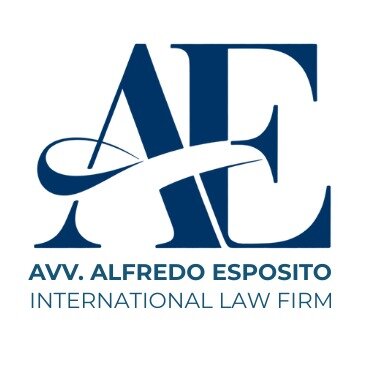Best Real Estate Due Diligence Lawyers in Italy
Share your needs with us, get contacted by law firms.
Free. Takes 2 min.
Free Guide to Hiring a Real Estate Lawyer
Or refine your search by selecting a city:
List of the best lawyers in Italy
About Real Estate Due Diligence Law in Italy
Real estate due diligence in Italy is a critical process undertaken during property transactions to ensure that buyers and sellers are fully aware of the legal, regulatory, and physical conditions of the property. It involves a thorough examination of the property's legal status, including ownership and zoning regulations, as well as its structural and environmental condition. Due diligence helps to identify any potential issues that could affect the property's value or lead to legal disputes in the future.
Why You May Need a Lawyer
Engaging a lawyer for real estate due diligence is crucial in several situations. These include:
- Complex property negotiations where multiple parties are involved.
- Transactions containing large sums of money or multiple properties.
- Purchasing property from a foreign owner or dealing with international real estate.
- Need for accurate interpretation of Italian property laws and regulations.
- Desire to prevent potential legal disputes and assure compliance with local laws.
- Identifying any hidden liabilities, such as environmental concerns or unresolved liens.
Local Laws Overview
Italy has a unique set of real estate laws that can often be complex to navigate without professional guidance. Key aspects include:
- Ownership and Title Registration: Property ownership needs to be registered in the Land Registry Office (Catasto Edilizio Urbano).
- Zoning and Usage Regulations: Properties must comply with local zoning laws that dictate the allowable uses of the property.
- Building Permits and Regulations: All construction and renovation require proper authorization to ensure district compliance.
- Environmental Compliance: Properties need to conform to environmental regulations to avoid future liabilities.
- Tax Regulations: Property purchase is subject to various taxes, such as VAT, stamp duty, and municipal tax.
Frequently Asked Questions
What does due diligence involve for real estate in Italy?
Due diligence involves verifying property ownership, zoning compliance, checking for liens or encumbrances, ensuring building permits are in place, and assessing environmental and structural conditions.
How long does the due diligence process take?
The due diligence process can take several weeks to a few months, depending on the complexity of the property and the thoroughness required.
Can I perform due diligence on my own?
While possible, it's not recommended as it requires comprehensive knowledge of Italian property law. Hiring a specialized lawyer ensures the process is handled correctly and efficiently.
What happens if issues are found during due diligence?
If issues are discovered, buyers can negotiate with sellers for remedial actions, price adjustments, or potentially withdraw from the transaction if terms aren't met.
Are there any mandatory checks during due diligence?
Yes, checking the property’s title, confirming no legal proceedings are pending, and ensuring compliance with local building and environmental regulations are mandatory.
Is a notary required in Italian real estate transactions?
Yes, an Italian notary is required to formalize the transaction, ensuring it complies with legal stipulations and is properly registered.
What types of properties require the most complex due diligence?
Properties with shared ownership, historic buildings, and those intended for redevelopment or commercial purposes typically require more complex due diligence.
What are some common risks if due diligence is not performed?
Risks include hidden debts, property rights disputes, incomplete permits, and regulatory non-compliance, which could lead to costly legal challenges.
How does due diligence in Italy differ from other countries?
Italy's due diligence process can be more intricate due to its historical property laws and varying regional regulations, necessitating local expertise.
What is the role of a real estate lawyer during due diligence?
A real estate lawyer offers legal expertise, conducts comprehensive checks, advises on risk management, negotiates on behalf of clients, and ensures compliance with Italian laws throughout the transaction.
Additional Resources
Individuals seeking more information about real estate due diligence in Italy can contact the following resources:
- Italian Land Registry (Catasto Edilizio Urbano)
- Chamber of Commerce in Italy (Camere di Commercio)
- Real Estate Professionals Associations in Italy
- Italian Notaries Council (Consiglio Nazionale del Notariato)
Next Steps
If you need legal assistance with real estate due diligence, consider the following steps:
- Research and contact a reputable real estate lawyer or law firm with expertise in Italian property law and due diligence.
- Prepare all necessary documents and information about the property for your initial consultation.
- Discuss your property goals and any concerns with your lawyer to tailor the due diligence process to your needs.
- Ensure a clear understanding of legal fees, timelines, and procedural steps involved in due diligence activities.
By taking these steps, you can ensure a smoother, more secure property transaction in Italy.
Lawzana helps you find the best lawyers and law firms in Italy through a curated and pre-screened list of qualified legal professionals. Our platform offers rankings and detailed profiles of attorneys and law firms, allowing you to compare based on practice areas, including Real Estate Due Diligence, experience, and client feedback.
Each profile includes a description of the firm's areas of practice, client reviews, team members and partners, year of establishment, spoken languages, office locations, contact information, social media presence, and any published articles or resources. Most firms on our platform speak English and are experienced in both local and international legal matters.
Get a quote from top-rated law firms in Italy — quickly, securely, and without unnecessary hassle.
Disclaimer:
The information provided on this page is for general informational purposes only and does not constitute legal advice. While we strive to ensure the accuracy and relevance of the content, legal information may change over time, and interpretations of the law can vary. You should always consult with a qualified legal professional for advice specific to your situation.
We disclaim all liability for actions taken or not taken based on the content of this page. If you believe any information is incorrect or outdated, please contact us, and we will review and update it where appropriate.
Browse real estate due diligence law firms by city in Italy
Refine your search by selecting a city.















